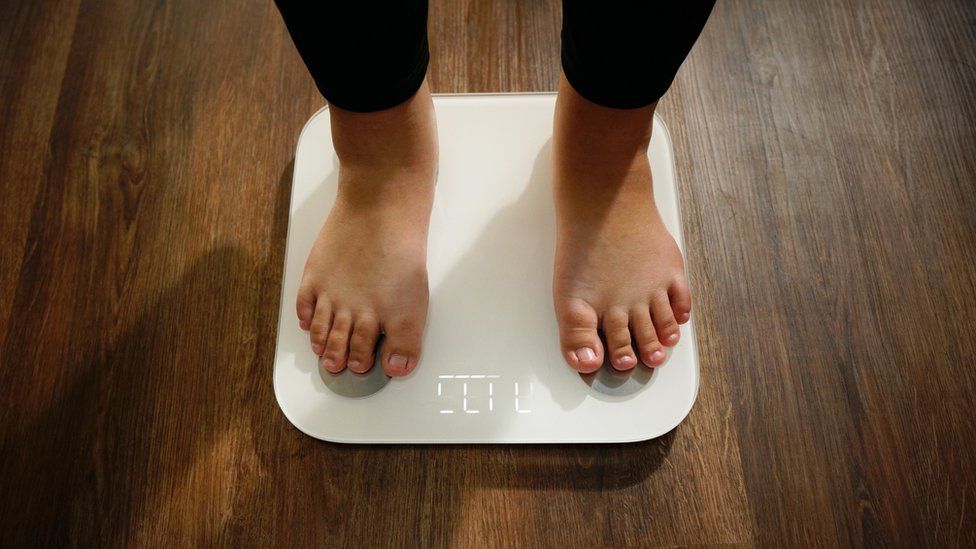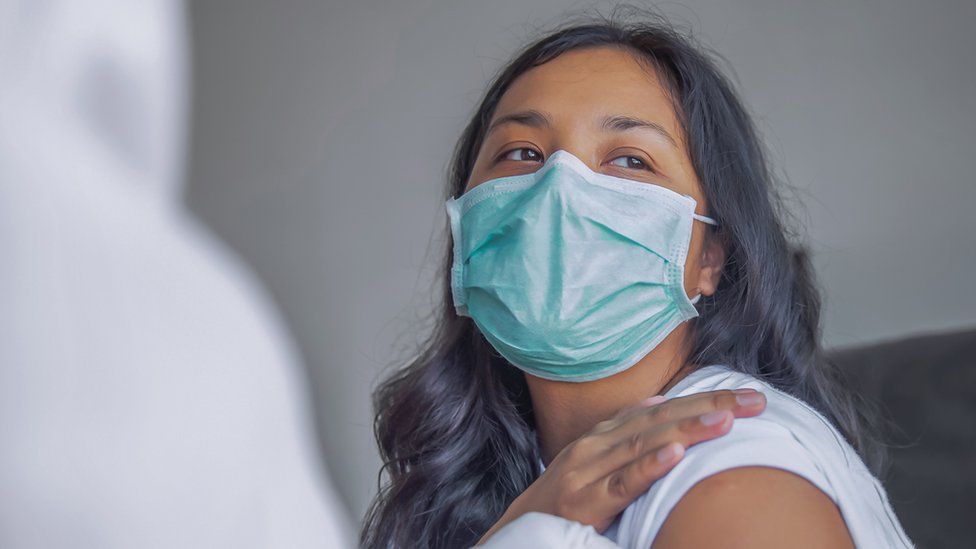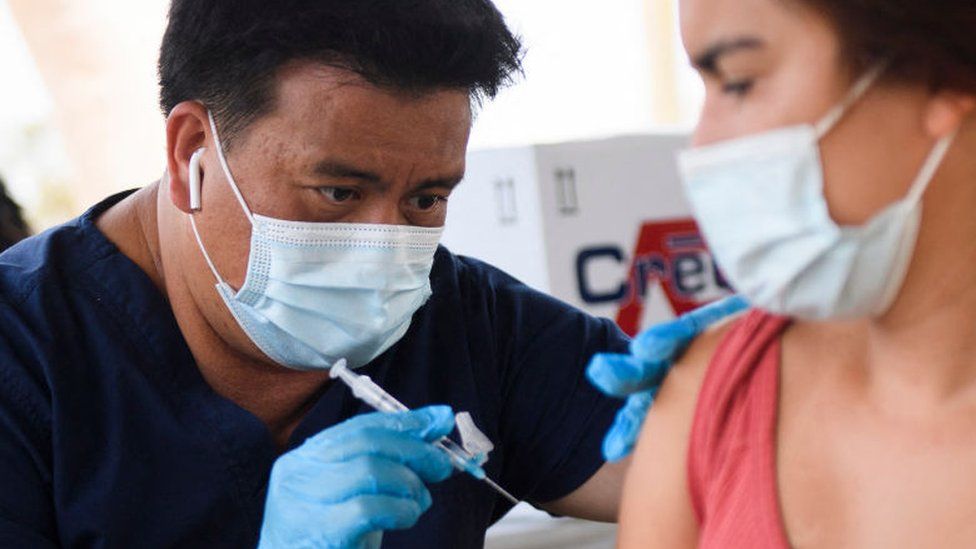Weight-loss drug reduces stroke and heart risk
Published33 minutes agoShareclose panelShare pageCopy linkAbout sharingImage source, Getty ImagesBy Laura FosterHealth, Science and Environment ReporterA weight-loss drug has been proven to also reduce the risk of a stroke or heart attack, according to a new trial.The makers of Wegovy say it cuts risk of a cardiovascular event in overweight people with heart disease by a fifth.The injection is popular in places like the US and was approved for weight loss in the NHS in England in June.The findings still need to be reviewed, and the drug would need to be passed by regulators again before it could be prescribed in a new capacity.But the company behind the drug, Novo Nordisk, says it has a clear medical benefit, as well as being able to help people lose weight.Executive vice-president, Martin Holst Lange, called it a landmark trial.”People living with obesity have an increased risk of cardiovascular disease, but to date there are no approved weight management medications proven to deliver effective weight management while also reducing the risk of heart attack, stroke or cardiovascular death.”He said it had the potential to change how obesity is “regarded and treated”.Results ‘do not disappoint’Wegovy is a weight-loss injection that is taken once a week.It tricks people into thinking they’re already full, so they end up eating less and losing weight.Wegovy was approved for NHS use after research suggested users could shed more than 10% of their body weight.But in trials, users often put weight back on after stopping treatment.This new study, which looked at more than 17,600 adults aged 45 and older, took place over a five-year period.Each patient had a body mass index of 27 or over and established cardiovascular disease, with no history of diabetes.Image source, Getty ImagesThe trial found that patients given a 2.4mg once-weekly dose of Wegovy, plus standard care for the prevention of heart attacks or strokes, saw their risk of a heart attack or a stroke reduce by 20% compared with those given a placebo drug.The full details of the trial will be released later in the year.Prof Stephen O’Rahilly, from the University of Cambridge, said the long-awaited results “do not disappoint”.”The obvious conclusion of these findings is that we should view obesity as a medical condition, like high blood pressure, where effective and safe drug therapy can contribute to reducing serious adverse health outcomes.”Novo Nordisk says it plans to take its new research to regulators in the US and the European Union before the end of the year.It would also need to be approved by regulators in the UK, and then experts would decide whether it is something that should be offered on the NHS.More on this storyCelebrity weight loss jab to be sold by chemistsPublished13 FebruaryWeight loss drug semaglutide approved for NHS usePublished8 MarchAre weight-loss injections the answer to obesity?Published19 March
Read more →


